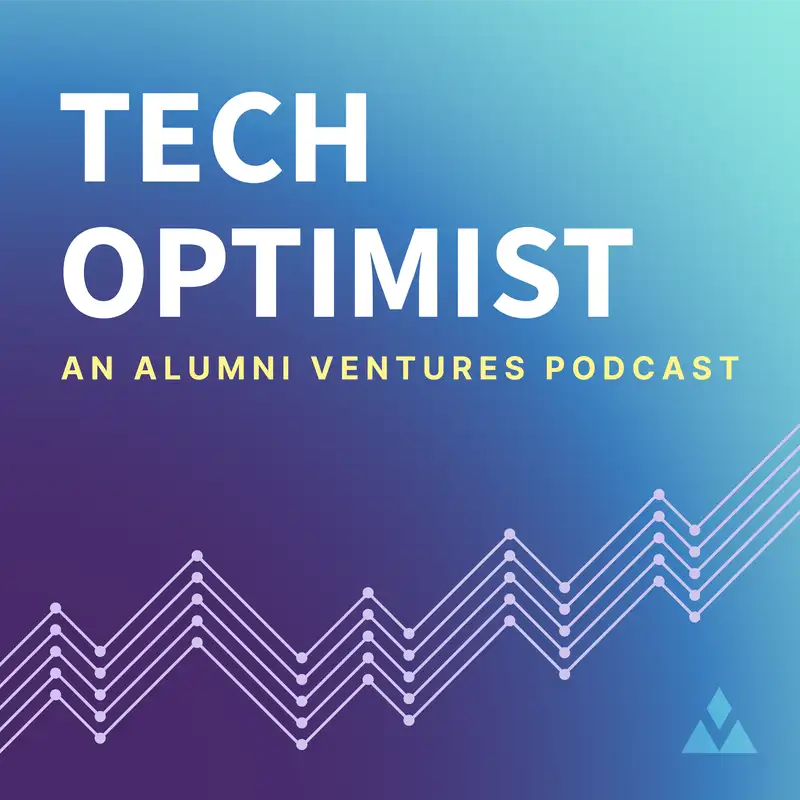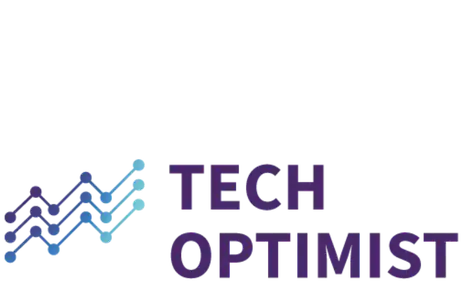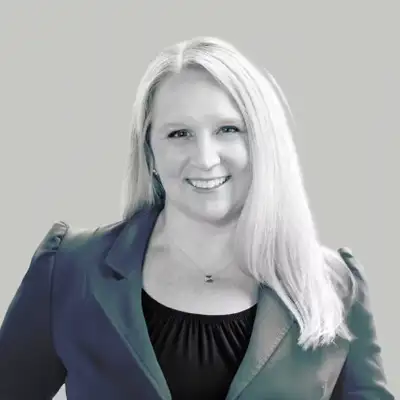#42 - Transforming Supply Chains With AI: Meet the Disruptor
Sam Herrick:
How secure is your company's supply chain? Apparently, we probably can get it safer. Let's find out how.
Meg Reiss:
But I really wanted to explore how the private sector could impact US national security writ large.
Pete Mathias:
What an extraordinary journey you've had, from the Dakotas to the absolute frontier of geopolitical consequence.
Meg Reiss:
And I'm a mission driven person, and you have a mission to build out US capabilities as quickly as humanly possible.
Sam Herrick:
Welcome back again, folks to this episode of The Tech Optimist. This is a Meet the Startup episode, and today we're meeting SolidIntel. Now our person taking us through the podcast today, it's going to be Pete Mathias. You know him, you love him, partner and everything here at Alumni Ventures. And then our guest is Meg Reese, founder and CEO at SolidIntel Incorporated. And then of course, you'll hear my voice, Sam Herrick, your tech nut writer and editor. Let's do it.
In a world captivated by criticism, it's easy to overlook the groundbreaking technologies shaping our future. Let's shine a light on innovators who are propelling us forward As the most active venture capital firm in the US, we have an exceptional view of tech's real-world impact. Join us as we explore, celebrate, and contribute to the stories of those creating tomorrow. Welcome to The Tech Optimist.
As a reminder, The Tech Optimist podcast is for the informational purposes only. It is not personalized advice, and it's not an offer to buy or sell securities. For additional important details, please see the text description accompanying this episode.
Pete Mathias:
Welcome everyone to Tech Optimist. What a thrill today that we have the visionary behind SolidIntel, Meg Reese. And Meg, as you will see, is building a trailblazing company in the realm of supply chain risk management, something that is all over the headlines. So Meg, let's start with the cornerstone of any great company, the entrepreneur, the visionary. Tell us about yourself and tell us what you are building.
Meg Reiss:
So I am building SolidIntel, which is the first generative AI supply chain illumination and de-risking company. We are able to build out novel risk identification capabilities at the speed of government regulation and new risks that's appearing in the geopolitical realms. And we're able to do it at a lower cost than legacy AI, and we need to do it as rapidly as possible. But the US government is mandating a whole lot of supply chain oversight right now. You're having huge new laws coming into place. The government is relying on all of these supply chain illumination tools to get their own capabilities right, and we want to be right at the forefront of it.
As far as my origin story, I am from Pierre, South Dakota, the great capital city in South Dakota, and I was lucky enough, I went to Stanford for undergrad and then I worked on Asia use of force policy under the legendary Secretary George Shultz at the Hoover Institution right after undergrad. So I got my start early in thinking about the China challenge.
From there, I got a PhD under the brilliant Will Inboden at UT Austin in nuclear policy. Then I came out to DC. I worked for Senator Ben Sasse of Nebraska as a national security fellow, and then I had the opportunity of a lifetime, which was spending four and a half years as Senator Mitt Romney's national security advisor. And that was where I got to learn about business and had the mentorship of one of the great businessmen of the last 50 years as well as a great statesman and a wonderful friend. And during that time, I got to spend as much time as I wanted exploring what my next step was going to be. And he really encouraged a few of us to think about the private sector. I'm a national security person at heart, but I really wanted to explore how the private sector could impact US national security writ large.
And we spent so much time in our own office, I got to draft five different pieces of legislation dealing with supply chain laws. We got to write some of the laws that we're now helping companies comply with, which is a great origin because I know the problem exists for them. And basically we had one big law that we passed that's the most stringent supply chain law that's ever been passed, called the Uyghur Forced Labor Prevention Act. That mandates that certain companies have to know their supply chains from the critical minerals on up, and it's very, very hard to do.
So when generative AI burst onto the scenes, I have come from Stanford, I still had a place in Silicon Valley, and I really wanted to explore and think through how we could use these new tools to bolster US national security. And this ended up being a test case. Once we got to proof of concept with my now co-founder, a guy named Hogan Kangas, brilliant AI engineer. We just got to build and really build out our thesis and think through all the ways we could apply this to US national security threats in the supply chain world.
Sam Herrick:
Anyone who knows me at all knows that I am a huge politics nerd, and I thought it was really insightful that Meg is or was the national security advisor to Mitt Romney. I think that's a really cool position to have, and I kind of wanted to clarify what that advisor does for the said congressman to sort get across what her job was and how it helped influence her founding her company, SolidIntel.
So how they're different from the national security advisors to the president is they provide policy expertise. So the advisor provides specialized knowledge on national security matters to the senator or congressman, helping them make informed decision and statements on issues related to defense, foreign policy and Homeland security. They assist in drafting and reviewing legislation related to national security, ensuring the senator or congressman's initiatives align with current security needs and priorities. The advisor also helps prepare briefings and analysis on national security issues, keeping the senator updated on global events and potential impact on US interests.
So they mostly do a lot of committee work, constituent services, interagency liaison. Sometimes for media and communications, they may help draft speeches, press releases, or op-eds. The advisor often maintains relationship with experts think tanks and other stakeholders. So they're a bit of a networker, which is pretty cool too. And as far as crisis response, I found this interesting, during national security crises, they provide rapid analysis and recommendations to help the senator or congressman respond effectively and quickly. Pretty cool. We're going to hop into an ad and then we're going to hop right back into the interview.
Pete Mathias:
Hey everyone, just taking a quick break so we can tell you about the US Strategic Tech Fund from Alumni Ventures. AV is one of the only VC firms focused on making venture capital accessible to individual investors like you. In fact, AV is one of the most active and best performing VCs in the US. And we co-invest alongside renowned lead investors.
With AV's US Strategic Tech Fund, you'd have access to an investment portfolio focused on technologies that are critical to bolstering US national security and economic prosperity. We prioritize three key areas, homeland security, cyber AI, and digital strategy, and space innovation. By investing in companies innovating in these areas, you can support early stage ventures and help encourage sustained growth and technological progress in the United States. If you're interested in learning more, visit av.vc/funds/strategictech.
Meg, from drafting legislation on congressional floors from the Dakotas to the classrooms of the storied Stanford tech community, you've had quite the journey. When you think about SolidIntel and it's current journey, where are you all? It sounds like you just landed a co-founder. You obviously inherited quite a bit of market insights from your time in the national security community, but where is the company in its own journey?
Meg Reiss:
So we're still very early stages. We just hit our year mark, which is fantastic. We have our earliest paying customers, which is wonderful and scary, and they're giving us so many insights into how to build a better product, a more usable product. So we're very early, but I think we're really getting to this really interesting point where we're finding new applications for our tool. We're having more and more people coming to us because the need is so great. We're getting a lot of product market fit.
You and I were both at a conference last week in Detroit where it just turns out a lot of companies are struggling with the exact problems that we're trying to help them with, which is a great feeling for a co-founder. A little scary for the national security side of me that I don't want this to be an issue, but it does give a lot of affirmation that we're hitting something where there's a real insignificant need. The other thing is I'm just getting really more and more convicted by the ways that generative AI in particular can deal with and address and help companies with supply chain issues in a way, legacy AI. So I'm feeling pretty confident about where we're moving and really excited to see how the next six months goes.
Pete Mathias:
Meg, you mentioned Detroit. We were there for the REINDUSTRIALIZE conference, hundreds, hundreds, thousands, perhaps of entrepreneurs, investors, policymakers convened in the shadow of the central station of Detroit in the Newlab. And that's a great baseline for my next question. What brings so many entrepreneurs that could build anything to build in the areas that SolidIntel are building in these areas of national security? What are your minds on the tailwinds that you're seeing that drive this market and also SolidIntel's need?
Meg Reiss:
Yeah, I'll break it down three easy things. The first is there's legislation and regulation that's really pushing companies to build in this space because the policymakers see that there's an urgent need for the ability to have these core capabilities either in the US or with our friends and allies.
Second, you're getting a lot more money in this space. So it's not just lawmakers saying, "Hey, go build this." They're actually putting their money where their mouth is in this space. So you're going to see a lot of people that are going to build companies around where the need is, which is fantastic. And I hope that there's a continual belief by the VC community that dual use tech is worth it, because it's necessary for our national security.
You're seeing a lot more enforcements in my space. So in the supply chain space, companies are kind of getting hammered at the moment where they've failed to keep certain bad actors out of their supply chains, and also they all lived through COVID, right? So they're seeing that you need duplicity, you need alternative suppliers. You can't just base your entire supply chain on one potentially bad actor that could disrupt everything.
But I come from the national security world. So that's the world where I think you have some of the folks who are jumping on these bandwagons because there's an economic driver, which I completely support. Let's push people in that direction. But then you have the folks where it's the mission, and I'm a mission driven person, and you have a mission to build out US capabilities as quickly as humanly possible because we have a big bag boogeyman everywhere at the moment. And for better or worse, and not all your listeners will love to hear this, but I am convicted that there could be a flashpoint over Taiwan in the next few years. Xi talks about specifically that the essence of the great rejuvenation campaign is the rejuvenation of the motherland, and that means uniting mainland China with Taiwan.
Admiral Aquilino, the most recent admiral at INDOPACOM, said that the challenge... Oh, he quotes Xi on this, that, "The challenge of the Chinese military is to be prepared if we're required to take Taiwan by force by 2027." And so these are relatively short timelines to get this stuff right. And we live in a world where China has already cut off supply chains. They're putting export controls on aeronautics equipment and space equipment as of today. It goes into effect on July 1st. So you're seeing all of these things come together. And if you haven't read Alexander Field's chapter on rubber in this book called The Economic Consequences of US Mobilization for the Second World War, I highly recommend it because it's all about how the US national security community saw that there could be a flashpoint in the start of World War II, that there could be a cutoff of the rubber, natural rubber supply chains.
And when it happened, when Japan took over Singapore, our access to natural rubber dropped by 90%. It took years to rebuild and to build out a synthetic rubber industry. And the estimates are this actually delayed the US effort to go on mainland Europe by as much as a year. So these are massive consequences for seemingly small decisions. And the funny thing is, Congress had allocated a hundred million dollars to restart critical materials and really push money to understanding and developing out rubber capabilities before World War II started. We just chose not to do it in the end. And so this is a lesson for today, and I think we've learned this lesson. We're trying to apply it. There's just this whole community building out on how to restart industrialization in the US to make sure that in worst case scenario, if there is a flashpoint over Taiwan, that we're prepared and we can deter even better by having those capabilities in place ahead of time.
Sam Herrick:
We're going to take a short break and then we'll be right back.
Speaker 4:
Do you have a venture capital portfolio of cutting edge startups? Without one, you could be missing out on enormous value creation, and a more diversified personal portfolio. Alumni Ventures, ranked a top 20 VC firm by CB Insights, is the leading VC firm for individual investors. Believe in investing in innovation? Visit AV.VC/foundation to get started.
Sam Herrick:
All right, I was curious. It's Sam here. About the chapter that Meg brought up within the Economic Consequences of US Mobilization for the Second World War by Alexander J Field. So this chapter that she's talking about is chapter three, and it's titled, "What Kind of Miracle was the US Synthetic Rubber Program?" So Meg gave us a really good summary of the chapter, and I wanted to dig into a little bit more.
So Yale University Press has this book for access, but I'm just going to read the abstract for this chapter. So this chapter evaluates the US synthetic rubber program, which was designed as a response to the loss of Southeast Asian rubber imports during World War II. The initiative was hampered both by flawed design and pre-war denialism that the United States would or should be become involved in the war, which led to delays in facilities construction.
The US Synthetic Rubber program started late, failed to meet production targets before the last quarter of 1943, produced an imperfect substitute for natural rubber and evolved hundreds of millions of dollars of unnecessary expenditure. In the wake of the politicized battle over what feed stock should be used in the program, and after his veto of the Rubber Supply Act in 1942, President Roosevelt appointed a committee and has structured it to examine the perilous economic, military and political situation in which the country then had found itself.
The chapter then discusses the crisis that brought the committee into existence and the substance of its September 1942 report of the Rubber Survey Committee, referred to as the survey committee report. It looks at the attempts to develop alternative plant-based sources of latex, the program's emphasis on petroleum and the nationwide program of gas rationing to save rubber.
So again, I really like how Meg had said such a small thing that you never really think about and how the consequences of that are, have not having that supply chain locked down and how much that really affected everything.
It's like the ripple effect of one little thing that thought was an everyday sort of necessity within the country, right? Rubber production. I mean, never would you think that that would be such an important thing until it becomes an issue. But yeah, wanted to share a little bit about that. If you want to read the rest of the book, I mean do it up. It looks like a great book. I might add it to my Audible cart here soon. But yeah. So we're going to hop in and we're going to wrap up the rest of this interview.
Pete Mathias:
Meg, when you look at the community of some 10,000 plus investors, 600,000 people who say Alumni Ventures is a part of their entrepreneurial community, what asks does SolidIntel, what asks do you have as a founder building in these space? You obviously have introduced key considerations for our community to pay attention to, flashpoints in Taiwan, but as you build for the United States, what can the United States build for you or what do you need from your community?
Meg Reiss:
My goal is, as I said, I'm mission driven. So I want SolidIntel to be used by as many companies as soon as humanly possible, which luckily aligns with investor goals of building up a rapidly scaling company. But the reason I want it, yes, I really want to be profitable as soon as possible. I want to build this impressive company, but I also want it for US national security interest. And I want to build a company that can be used not just by the Fortune 100s or 500s, which are pretty much the only companies that use tools like this right now. I want it to be used across the board because our economy is only going to be as strong as each of its layers. And so mid-tier companies have to start using tools like this, so in the case that there is geopolitical disruption, they are prepared and they are able to deal with it.
The other thing is startups need to start using this. You need to start growing with this in mind, both so that you can sell to US government or to other governments because they're also starting to deal with these issues. But just to create a good foundation for your company and not to get yourself in a position where you could be disrupted longterm.
So one, if anyone in this community has companies that this is triggering, reach out to us. We're building with them right now. We're still early stage. We're not perfect, but we are trying to build with these companies to get the products to where they want. So it's regulatory compliance. It's making sure that they have all the documentation in place and do it quickly and easily and cheaply. It's building out ITAR capabilities. And the last thing is we still need to place our stage two SIBER in an Air Force office. So if there are any Air Force folks listening to this right now, we have a stage two SIBER we're floating around with and trying to pitch. So reach out to us. We'd love to work with you.
Pete Mathias:
Meg, thank you for your mission drive, what an extraordinary journey you've had from the Dakotas to the absolute frontier of geopolitical consequence. Thank you for building SolidIntel and a big thank you for joining us today on The Tech Optimist.
Meg Reiss:
Wonderful.
Sam Herrick:
Thanks again for tuning into The Tech Optimist. If you enjoyed this episode, we'd really appreciate it if you'd give us a rating on whichever podcast app you're using and remember to subscribe to keep up with each episode. The Tech Optimist welcomes any questions, comments, or segment suggestions. So please email us at info@techoptimist.vc with any of those and be sure to visit our website at AV.VC. As always, keep building.








